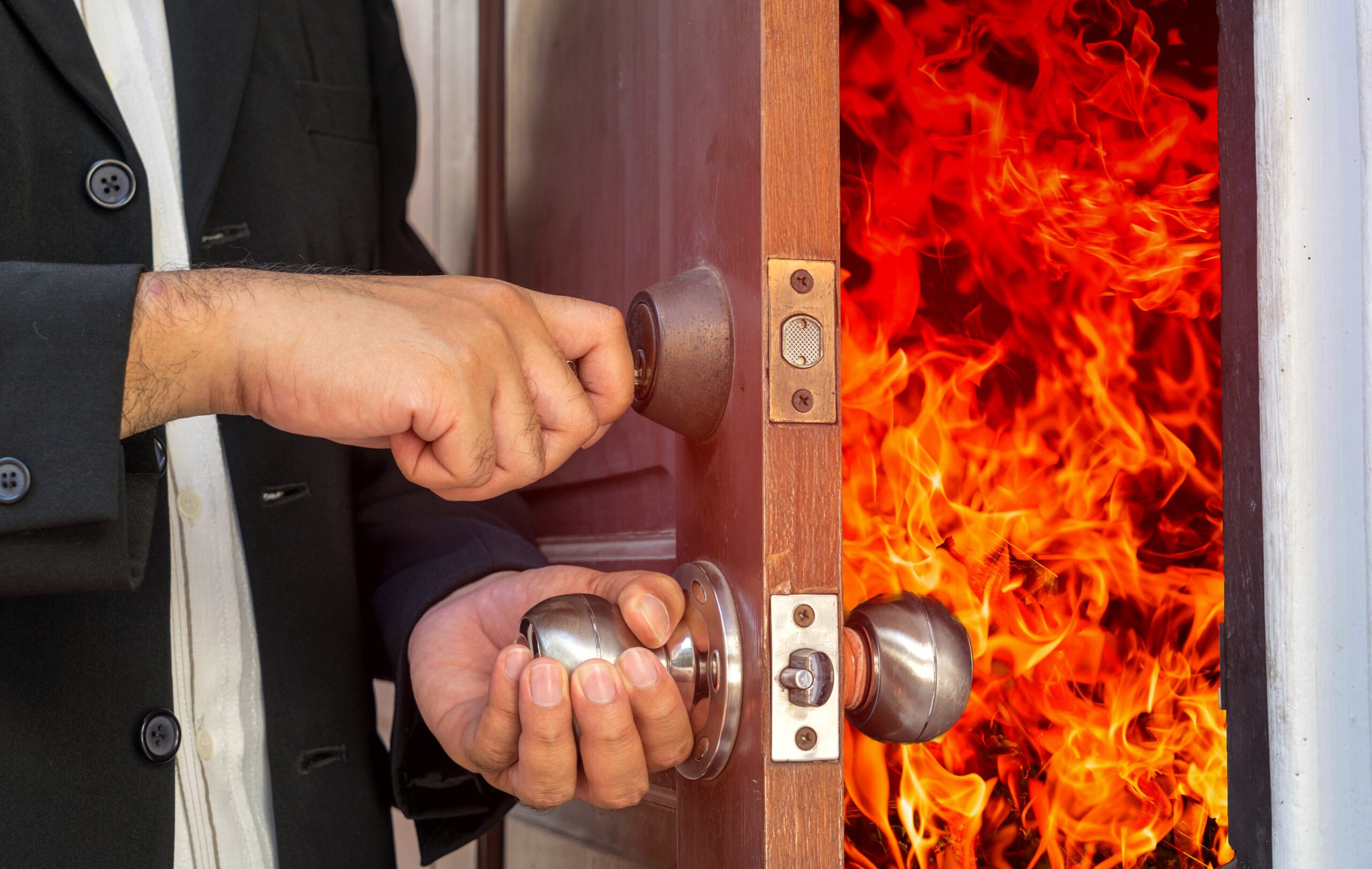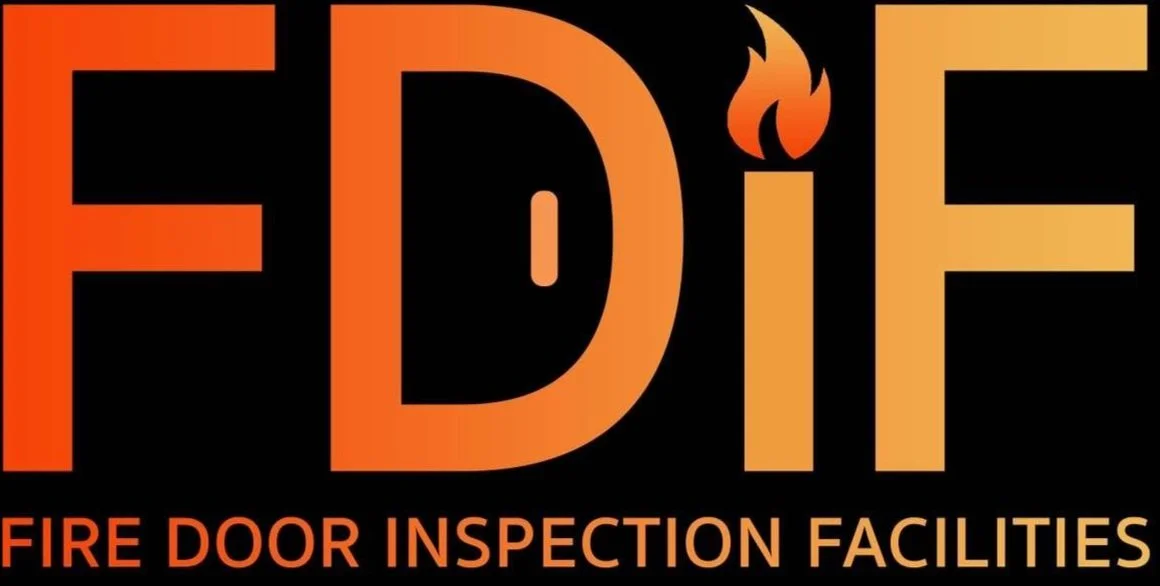
FIRE DOOR INSPECTION FACILITIES
FOR ALL YOUR INSPECTION AND REMEDIAL NEEDS
Our Services:
Fire Door Inspections
Repair or Replacement
Fire Extinguishers
Fire Alarms
Safeguard Your Premises
FDIF contributes to safeguarding a range of exceptional properties across the UK, spanning upscale residential projects to exclusive office areas in the commercial and public building sectors.
IF YOU ARE EITHER A:
FACILITIES MANAGER
BUILDING MANAGER
BUILDING OWNER
LANDLORD
RISK ASSESSOR
MANAGING AGENT
Building owners and landlords have both a legal duty and an ethical responsibility to ensure the security of their properties and the well-being of the individuals residing within them. Within the fire safety framework of buildings, fire door inspections hold a central position, and there exist several compelling legal motives for building owners and landlords to conduct yearly fire door inspections.
One aspect of fire safety that often goes unnoticed is the significance of fire doors. These doors are commonly overlooked, yet in the event of a fire, they undertake a vital role in safeguarding the building's occupants and minimising harm to both the property and the structure itself. They serve as an indispensable constituent of the building's passive fire protection.
WHAT IS THE REGULATORY REFORM (FIRE SAFETY ACT) ORDER 2005?
The Fire Safety Order contains two key paragraphs:
Article 17
Article 17 requires the responsible person has ‘a suitable maintenance regime to ensure relevant equipment is kept in an efficient state’. This includes fire doors.
Article 18
Article 18 ‘requires the responsible person to appoint one or more competent persons to assist in undertaking the preventative and protective measures’. A ‘competent person’ is defined in the Fire Safety Order as ‘someone who has sufficient training, qualifications and experience to assist the Responsible Person to meet some of their duties.’
Fire safety law in England and Wales applies in all buildings except inside people’s private dwellings. Premises affected could be things like schools, factories, hotels, offices, and entertainment venues. It also affects the communal areas of a block of flats. The law is called the Regulatory Reform (Fire Safety) Order 2005.
It states that each building needs to have a duty holder or holders who are responsible for mitigating the risk of fire in all non-domestic buildings.
This includes the common parts of flats, apartments, and houses of multiple occupation (HMOs).The duty holder is called the ‘responsible person’ and is typically the person, organisation or company that controls the building. The responsible person must carry out a fire risk assessment and maintain a fire management plan.
The Fire Safety (Scotland) Regulations 2006 and several other important fire safety papers were enacted in Scotland as independent fire service and fire safety laws. In 2010, the Fire Safety Regulations were brought in in Northern Ireland.
Failure to adhere to the terms of the Fire Safety Order can lead to fines and prison sentences.
FREQUENTLY ASKED QUESTIONS:
-
Fire doors should be inspected at regular intervals, typically annually, by qualified professionals. However, more frequent inspections might be necessary for high-traffic areas or buildings with specific requirements.
-
The primary purpose of a fire door is to compartmentalise a building and prevent the rapid spread of fire and smoke. It provides occupants with a safe means of escape and allows firefighters more time to respond.
-
No, fire doors are important for various types of buildings, including commercial, residential, public, and industrial structures.
-
Safety: Fire doors contain fires, limit smoke, and ensure safe exits. Inspections guarantee proper function during crises, saving lives.
Compliance: Jurisdictions require inspections to meet safety codes. Ignoring this risks legal penalties and fines.
Risk Management: Regular checks find issues that compromise doors, preventing failures and hazards.
Liability Reduction: Maintenance and inspections show dedication to safety. Ignoring them can lead to legal claims and more liability.
Insurance Mandates: Some policies need inspections. Neglect can affect claims after fire damage.
Financial Savings: Identified problems during inspections prevent costly replacements and damage.
Reputation: Inspections boost building reputation, inspiring trust in occupants and visitors.
Emergency Plans: Inspected doors aid evacuation and firefighting plans.
Code Adherence: Regular checks show commitment to fire safety standards.
Peace of Mind: Inspections ensure safety and provide peace of mind for occupants and property.
-
Building owners, managers, or the "responsible person" designated by fire safety regulations are typically responsible for ensuring that fire doors are properly inspected and maintained.
-
In the United Kingdom, neglecting the maintenance and inspection of fire doors can have serious implications, both from a legal and fire safety perspective. The regulatory framework for fire safety in the UK emphasises the importance of proper maintenance and inspection of fire doors to ensure the safety of building occupants.
-
Some insurance policies may require regular fire door inspections as part of risk management practices.
Failure to meet these requirements could lead to insurance claims being denied or coverage being affected.
-
Fire doors are designed to be kept closed to effectively contain fire and smoke. Hold-open devices should be connected to a fire alarm system to ensure that fire doors automatically close in the event of a fire.
CONTACT US
Contact FDIF, FIRE DOOR INSPECTION FACILITIES, We here at FDIF are here to assist you with all your Fire needs.
Please contact us on any of the methods below to allow FDIF to provide a solution that meets your requirements with a no obligation quotation.
Email us on: info@fdif.co.uk
Call us on: 02920 513056
Reach out to us on socials: FDIF















